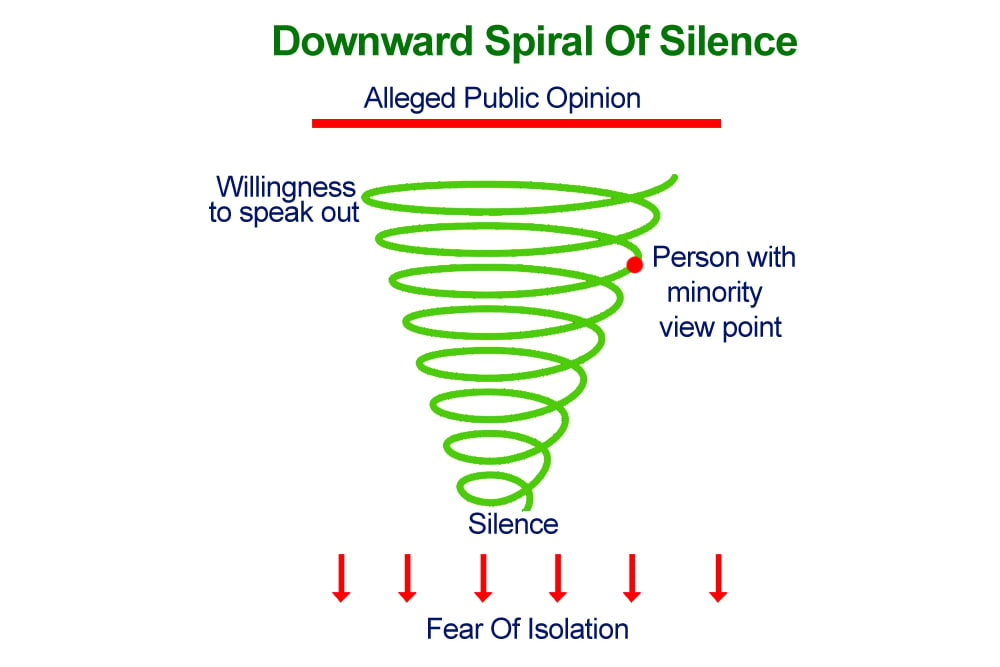She believed that humans inherently have a "quasi statistical sense" of the popularity of our own opinions. If a person believes that their opinion is not high in popularity, they may choose to stay silent in fear of repercussions. The primary reason that this spiral exists is humanities fear of isolation or some sort of reprisal.
By definition, the Spiral of Silence is the term meant to refer to the tendency of people to remain silent when they feel that their views are in opposition to the majority view on a subject. In simpler terms: the Majority will speak out when praised and the Minority will silence when shunned.

This Theory was originally published by a German Political Scientist named Elisabeth Noelle-Neumann in 1974. She used this theory to come up with a possible explanation for why many Germans did not oppose the Nazi party.
The media effects this theory both negatively and positively. On the negative side, words commonly used in media like "all" or "most" lead people to believe that their view is not seen by anybody else and that they must be wrong. This furthers peoples tendencies to stay silent. On the flip side, the media does manage to impact the effects of this theory in a positive way through social media. Through apps like instagram, twitter, or snapchat people feel more comfortable voicing their opinions that may receive backlash as opposed to speaking face to face.
Just like any theory, this one comes with a few criticisms. Some have questioned Noelle-Neumann's proposal of a quasi statistical sense and whether we truly can sense the popularity of a viewpoint. Others have asked if fear of isolation is strong enough to deter people from voicing their opinions.
No comments:
Post a Comment